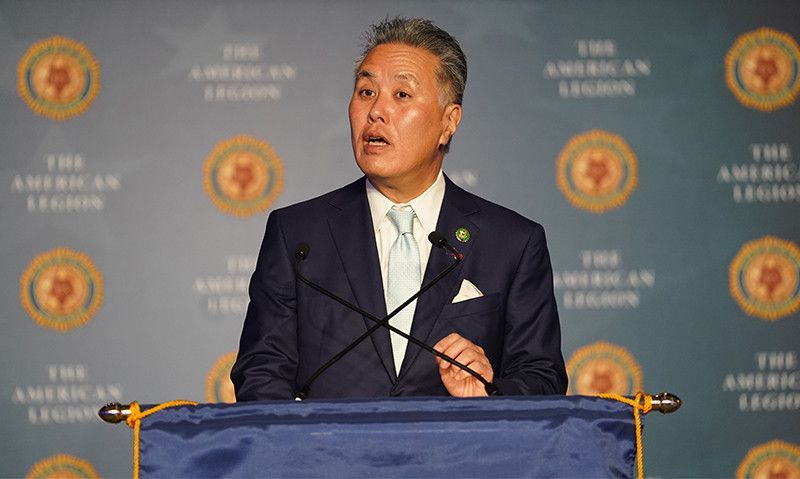
Takano warns of budget battle ahead
The Sgt. 1st Class Heath Robinson Honoring Our Promise to Address Comprehensive Toxics (PACT) Act of 2022 was passed last August in what former House Committee on Veterans’ Affairs Chairman Mark Takano, D-Calif., called “one of the huge bipartisan wins we accomplished last Congress.”
Now, he told hundreds of American Legion members gathered in Washington Tuesday, “the hard work begins” to fulfill the promise of the legislation he first introduced in 2021, along with 81 other measures passed for veterans. “I am worried about the fate of these accomplishments.”
The PACT Act opened the door of VA healthcare and disability benefits eligibility for some 3.5 million previously denied veterans who suffered from exposure to burn pits, atomic radiation and Agent Orange while serving in the U.S. Armed Forces. If budget cuts are implemented and VA funding is held at 2022 levels, Takano warned, “this means the bills we passed and the programs we authorized are in jeopardy.”
VA would face a 24% cut, or about $31 billion, he said, if cuts now being discussed are imposed. “That would effectively wash away the huge successes of the past four years.”
Takano, an American Legion Boys State alum and now ranking member on the House Committee on Veterans’ Affairs, said he will fight for VA funding in the first session of the 118th Congress. “When we got the Honoring Our PACT Act signed into law, we sent a message to millions of veterans that the United States of America will uphold her promise to pay for the cost of war. This is a promise I refuse to renege on, and it is a promise I will hold my counterparts across the aisle accountable to.”
Takano thanked The American Legion for its unflinching support of the PACT Act, which he said would not have been possible without the “tireless advocacy of everyone in this room today.
“Because of your support throughout the year, millions of veterans and their loved ones can rest a little easier knowing that the United States is finally recognizing their health conditions as a cost of war and that their families can spend more precious time with each other, instead of fighting VA for their loved ones’ care.”
VA budget cuts could put veterans in the predicament of competing for federal dollars against other interests, including the military spending. Authorized programs and services to reduce veteran suicide, enhance care for disabled veterans, help survivors of Military Sexual Trauma and homeless veterans would be threatened, he added.
“I don’t want to see veterans forced to participate in the equivalent of The Hunger Games with their own programs … I am not going to stand by and see veterans forced to fight other veterans for the care and benefits they have rightfully earned.”
